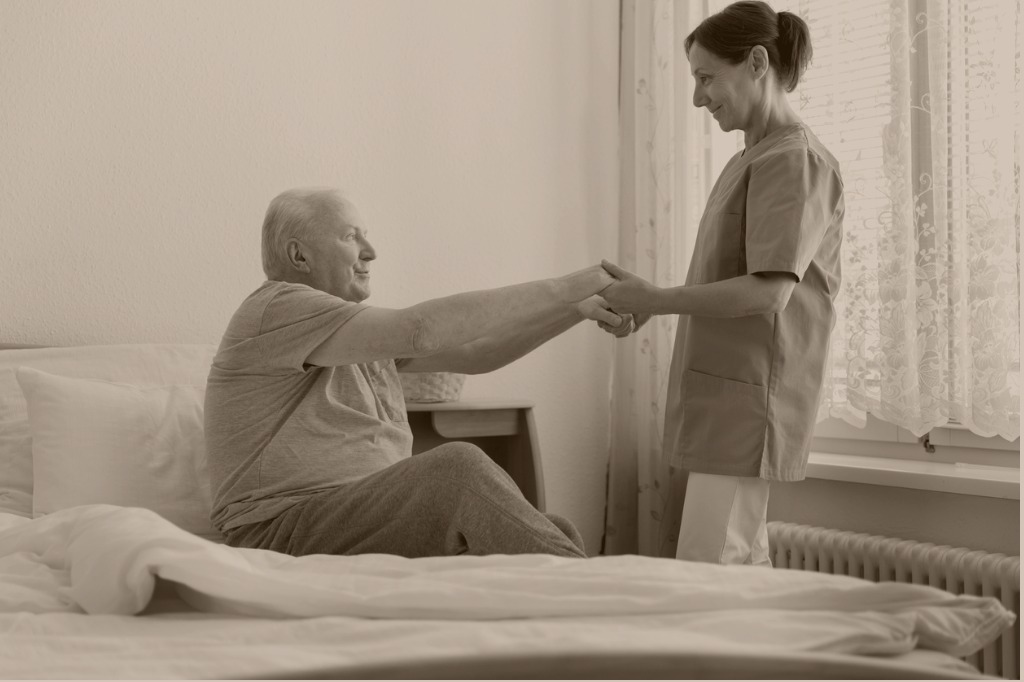Red Flags Your Senior Loved One Might Need Help With Everyday Tasks
After a serious health event, or surgery that requires hospitalization, the days and weeks that follow can be strenuous at best. Many people need rehabilitation services, such as physical, occupational,and some patients might need nursing care to build back their strength.
For families of the patient, this time can be life-changing. When an elderly loved one goes through a major health issue the realization that things are changing and might never be the same becomes a reality. You may find their are so many questions you need answered too, as well as your loved ones own questions. This can lead to more stress as you begin to uncover the answers.
Your best bet at this time is to make a list and ask the questions. Then ask them again…The answers can change over time, especially if the patients status changes.
Create a personal hospitalization discharge plan
In order to provide the best care you can, you should start this process from the moment your loved one enters the hospital. Questions and answers, will become your best sense of direction.
- Ask the doctor, what can we expect next?
- Therapy might be needed after discharge. Make sure you ask follow-up questions?
- What services will your health insurance or Medicare pay for?
- Will I need to bring in Home Care to help with personal care such as dressing, feeding or bathing?
- How much support will they need to do complete everyday tasks?
- Are their any problems I should be on the look out for?
- What is the average length of recovery?
- Are their side effects I should watch out for?
You will soon find out that one question leads to another, so be sure to write down all answers. This plan will become invaluable as you navigate your loved one’s recovery.
What Resources Are Available to Me?
Rehabilitation programs can vary from each location. Many programs even have a waiting list, so you need to contact them as soon as you know that their services are needed. Start doing research and calling to locate the program that your loved one will need.
Be aware that different therapies can be given in different ways. Their may be therapists that come to you or you might need to bring your loved one to them. Depending on the extent of your loved one’s recovery, their might be residential rehabilitation centers that might be your best option. You, along with your loved one will need to decide what is best for them.
If you are not able to oversee the necessary care, look into assistance from advocates that can watch over your loved one’s progress and ensure they are getting proper care every hour of the day.
Make Sure You Take Care of Yourself as Well.
When you help plan, and prepare care , you need to make sure that you are not only doing what’s best for your loved one, but also what’s best for yourself. This can be a heavy burden for many, especially if they are dealing with health problems of their own.Don’t be afraid to ask for help. Don’t be afraid to take the time you need to do what’s right for you. Your need to ask questions for yourself and your state of being as well. Find out what counseling options are available to you, if you feel you need the help to stay sane. Not addressing your own feelings can be detrimental to the entire process.
If you need help taking care of a loved one, who has recently been released from a hospital stay, consider the help from a home health aide or certified nursing assistant. This will give you the peace of mind that your loved one is well taken care of, and will allow you to take care of the things you did prior to your loved ones hospitalization stay.
Remember, this is a time of transition for everyone involved. If you plan ahead and take the necessary steps to build plan, this transition should go smoothly and allow you to plan for the next stage of your loved ones care.






